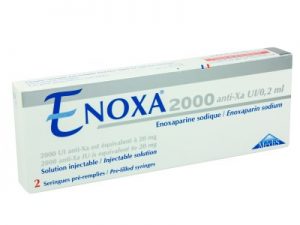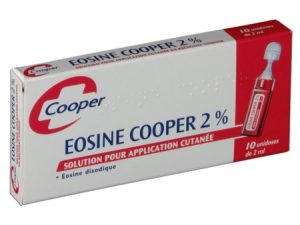Isolone Tablet
Generic Name(s): Prednisolone
Why it’s used
Isolone Tablet is a prescription medicine that is used to treat certain types of allergies, inflammatory conditions, autoimmune diseases, skin and eye diseases, and cancers. This includes asthma, multiple sclerosis, rheumatoid arthritis, nephrotic syndrome, leukemia, and lymphoma. This medicine works by blocking the response of certain inflammatory cells that cause swelling, redness and pain in the body. Isolone Tablet is also used to reduce the pain from certain aggressive forms of cancers such as acute leukemia and aggressive lymphomas, and to treat certain endocrinal conditions like decreased hormone production of the adrenal gland and swelling of the thyroid gland.
Corticosteroid
Isolone belongs to the Corticosteroid class of medicines. Corticosteroids are medicines that are used to provide relief for inflammation in the body. They reduce swelling, redness, itching, and certain allergic reactions. They are often used to treat severe skin problems, asthma, and arthritis. Corticosteroids can have side-effects that are very serious as they are very strong medicines.
How to use
Read the directions on the product label, patient guide, or medicine guide provided by the medicine company or your pharmacist before starting to use Isolone Tablet. If you have any questions related to this medicine, ask your doctor or pharmacist. Use this medicine as recommended by your doctor.
Isolone Tablet is used with food. To prevent irritation in the stomach and intestines. Swallow the whole tablet with or without water. Do not break, chew or split the tablet.
Typical Dosage
The typical dose of Isolone is 10-60 mg a day depending on the specific disease and its severity. This medicine is typically used for a period of 3-10 days for asthma. This medicine is not known to be habit-forming.
You should continue to use this medicine as directed by the doctor even if you feel well.
If using the orally-disintegrating form of this medicine, make sure you do not consume any food or fluid 5 minutes before or after taking this medicine. Before taking the medicine out of the package, wash your hands thoroughly. Place the medicine on the tongue. Make sure you do not chew or swallow the medicine. You do not need to drink water after consuming the medicine. In certain cases, the medicine can taste slightly bitter. Also, ensure that you do not break or split the medicine.
When used in the injection form, this medicine is given directly into muscles (intramuscular), joints (intra-articular), or around the body joints (periarticular route).
If using the liquid form of this medicine, measure the dose using the provided measuring cup, spoon, or dropper. Before pouring the medicine into the measuring device, you should check the measurement markings carefully. Then, pour the dose amount into the device. After use, clean and store the measuring device in a safe place for your next use. You should not use a tablespoon or teaspoon as the dose measuring devices since it can result in an incorrect dose. If indicated on the product package, shake the medicine before use.
Talk to Your Doctor
Talk to your doctor if your condition worsens. You should consult with your doctor before stopping the use of Isolone.
Your doctor may recommend a lower initial dose of this medicine to see the impact of this medicine on the body. Please follow your doctor’s directions. A lower dose of this medicine may be recommended to reduce the risk of side-effects. Older patients may see an increase in the incidence of side-effects with this medicine. As a result, a lower dose may be recommended for older patients.
When stopping this medicine, you may experience withdrawal symptoms such as an insufficient production of steroid hormones (adrenal insufficiency), and low blood pressure. You may need to gradually decrease the dose of this medicine before stopping.
Use in Children
If you are giving Isolone Tablet to a child, be sure to use a product that is meant for children. Before giving this medicine to a child, use the child’s weight or age to find the right dose from the product package. You can also read the dosage section of this page to know the correct dose for your child. Else, consult with your doctor and follow their recommendation.
Avoid licorice while using Isolone.
Storage
You should store Isolone Tablet at room temperature 20-25ºC (68-77ºF), away from moisture, and away from light. Store the medicine away from the reach of children and pets.
Medicines may be prescribed for uses other than those listed in the medicine guide. Do not use Isolone Tablet for conditions for which it was not prescribed. Do not give Isolone Tablet to other people who might have the same conditions or symptoms that you have. Self-medication may harm them.
Overdose
What to do if you overdose on Isolone?
If you have taken more than the recommended dose of Isolone, get medical treatment immediately. In the case of long-term intoxication, vomiting and cleaning out the contents of the stomach (gastric lavage) may help to reduce the toxic effects. Continuous steroid therapy is required to decrease overdose symptoms of Isolone.
Symptoms of an overdose of Isolone
If you use too much of this medicine, it could lead to dangerous levels of the medicine in your body. In such cases, symptoms of an overdose may include:
- abnormal enlargement of the liver
- abnormal fat deposits
- acne
- decreased blood potassium level
- decreased glucose tolerance
- decreased resistance to infection
- dry scaly skin
- excessive hair growth (hypertrichosis)
- fluid build up inside the body
- fractures
- headache
- high blood pressure
- increase in appetite
- increased heartbeat
- increased sweating
- inflammation of a vein due to the blood clot formation (thrombophlebitis)
- insufficient production of cortisol hormone (adrenal insufficiency)
- irregular periods (accentuated menopausal symptoms)
- low bone density (osteoporosis)
- menstrual disorders
- mental illness
- pain from nerve damage (neuropathy)
- skin coloration (pigmentation)
- skin discoloration (ecchymosis)
- skin marks during pregnancy (striae)
- stomach ulcer
- swelling of the abdomen (abdominal distention)
- thinning of scalp hair
- weakness
- weight gain
If you think you have overdosed on Isolone Tablet, call a poison control center immediately. You can look up the poison control center information from the Poison Center Finder at TabletWise.com.
Precautions while using Isolone
Before you use Isolone, tell your doctor of your medical and health history including the following:
- a family history of diabetes
- abnormal functioning of kidneys
- chickenpox
- congestive heart failure
- epilepsy
- glaucoma
- high blood pressure
- liver failure
- measles
- patients with blood clotting disorders
- patients with hypothyroidism
- recurrent episodes of heart attack
- severe mood disorders
- stomach ulcers
- tuberculosis
- weakened immune system
- weakness in skeletal muscles
- women with weakened and brittle bones after menstruation
Before you use Isolone Tablet, tell your doctor if you are allergic to it or its ingredients. Your doctor may prescribe an alternative medicine and update your medical records to record this information.
The use of this medicine may change bone density. Use of this medicine leads to a decrease in bone density. Proper monitoring is required in patients who are receiving long-term corticosteroid treatment.
The use of Isolone Tablet may change blood pressure. Use of this medicine may lead to an increase in blood pressure.
The use of this medicine may change intraocular pressure. Use of this medicine may increase the fluid pressure inside the eyes (intraocular pressure).
Use in Pregnancy
Use while Breastfeeding
Consult with your doctor on the use of Isolone during breastfeeding. This medicine may pass into breast milk. Hence caution should be exercised when using Isolone while breastfeeding, especially when using it for a long period of time.
Impact on Fertility
Consult with your doctor on the use of Isolone Tablet, if you are trying to conceive.
Seizures
Isolone Tablet can make you feel sleepy. Be careful while driving, using machinery, or doing any other activity that needs you to be alert. The consumption of alcohol with Isolone Tablet can make you feel more sleepy. Isolone Tablet may cause seizures in some people. Discuss with your doctor if you perform activities where a loss of consciousness may cause you or others harm.
Increased Risk
This medicine can cause stomach bleeding. The use of alcohol/tobacco with Isolone may increase the risk. Talk to your doctor if you drink alcohol or smoke regularly. Isolone can increase your risk of getting infections/worsen existing infections. Reduce your chances of new infections by washing hands often, avoiding people who are sick, preventing injuries, and by not vaccinating without discussing with your doctor. Corticosteroids may increase the risk of infection if you are suffering from chickenpox, measles and Strongyloides threadworm infestation (intestinal infection). Hence use this medicine with proper care in such patients.
Side-effects in Children
Isolone Tablet may cause an increased risk of side-effects in younger patients. Children using this medicine may see an increased risk of delayed growth and development.
Side-effects in Older Patients
Isolone Tablet may increase side-effects in older patients. Elderly patients may see an increased risk of high blood glucose level, high blood pressure, low potassium level in the blood, low bone density (osteoporosis), more exposure to infections, and skin thinning.
Long Term Use
Use of this medicine for long-term may increase the risk of damage to the optic nerve (glaucoma), high blood pressure, low bone density, diabetes, low potassium levels in the blood, more exposure to infection and skin thinning particularly in elderly patients. In children, this medicine may lead to delayed growth and development.
Isolone Side-effects
The following side-effects may commonly occur when using Isolone Tablet. If any of these side-effects worsen or last for a long time, you should consult with your doctor:
- behavioural and mood changes
- fluid buildup inside the body (fluid retention)
- glucose intolerance
- high blood pressure
- increased appetite
- problem with the excretion of sodium from the body (sodium retention)
- weight gain
The following side-effects may commonly occur in older patients on the use of Isolone Tablet. Discuss with your doctor if any of these side-effects last for a long time or are severe:
- high blood glucose level
- high blood pressure
- low bone density (osteoporosis)
- low potassium level in the blood
- more exposure to infections
- skin thinning
The following side-effects may commonly occur in children when using Isolone Tablet. Discuss with your doctor if any of these side-effects last for a long time or are severe:
- delay in growth and development (growth retardation)
Rarely, the use of Isolone Tablet may cause the following side-effects:
- a small opaque or cloudy area on the backside of the lens (posterior subcapsular cataracts)
- abnormal fat deposits
- abnormally enlarged liver (hepatomegaly)
- acne
- bleeding in stomach and intestine
- bluish discoloration of skin due to trauma (ecchymose)
- decrease in carbohydrate tolerance
- disturbed blood flow due to fat deposits in the blood vessels (fat embolism)
- dry scalp
- emotional instability
- expended abdomen due to accumulated gas or fluid (abdominal distention)
- extreme happiness (euphoria)
- eye bulbing (exophthalmos)
- facial puffiness
- facial redness
- failure of heart circulation (circulatory collapse)
- fainting
- feeling of discomfort
- fluid build up in lungs
- fracture of long bones
- growth retardation in children
- headache
- heart enlargement
- hiccups
- improper wound healing
- inadequate pigmentation of the skin (hyper or hypopigmentation)
- increased liver enzyme levels in the blood
- increased pressure inside the eye
- increased pressure within or around the brain
- increased sweating
- inflammation of the pancreas (pancreatitis)
- inflammation of veins due to the blood clot formation (thrombophlebitis)
- insomnia
- loss of body balance (vertigo)
- loss of heart functioning (cardiac arrest)
- loss of muscle mass
- loss of sensation in foot and ankle (Charcot-like arthropathy)
- menstrual abnormalities
- mood changes
- moon-like face
- muscle weakness
- nausea
- negative nitrogen balance due to protein catabolism
- nerve inflammation (neuritis)
- pain caused by nerve damage (neuropathy)
- palpitation
- partial loss of function in lower body parts (paraparesis)
- personality changes
- red or purplish spots on the skin (petechiae)
- sensory disorders
- separation of tendon from body tissues (tendon rupture)
- skin rashes
- skin rashes with itchy and raised bumps
- skin thinning
- slow heart rate (bradycardia)
- spinal compression fractures
- stretch marks (striae)
- suppressed reactions to skin tests
- swelling in body parts
- thickening of heart muscles in premature babies (hypertrophic cardiomyopathy)
- thin fragile skin
- thinning of scalp hair
- tingling sensation
- unwanted hair growth on female body (hirsutism)
- weakened and brittle bones (osteoporosis)
- weight gain
The following severe side-effects may also occur when using Isolone Tablet:
-
Bleeding in stomach and intestines
-
Heart diseases such as heart attack, abnormal heartbeat, clot formation in the blood vessels (thromboembolism) and inflammation of the blood vessels (vasculitis)
-
Neurological diseases such as painful inflammation in the spinal cord (arachnoiditis), inflammation of the brain and spinal cord (meningitis) and nerve damage (neuropathy)
-
Life-threatening allergic reaction (anaphylaxis)
Your doctor has prescribed this Isolone because they have judged that the benefits outweigh the risks posed by side-effects. Many people using this medicine do not have serious side-effects. This is not a complete list of possible side-effects for Isolone.
If you experience side-effects or notice other side-effects not listed above, contact your doctor for medical advice. You may also report side-effects to your local food and drug administration authority. You can look up the drug authority contact information from the Drug Authority Finder at TabletWise.com.
Side-effects and Allergic Reactions of Isolone by Severity and Frequency
Common Side-effects
Following are the common side-effects of this medicine:
- behavioral and mood changes
- fluid buildup inside the body (fluid retention)
- glucose intolerance
- high blood pressure
- increased appetite
- problem with the excretion of sodium from the body (sodium retention)
- weight gain
Infrequent and Rare Side-effects
Following are the infrequent and rare side-effects of this medicine:
- a small opaque or cloudy area on the backside of the lens (posterior subcapsular cataracts)
- abnormal fat deposits
- abnormally enlarged liver (hepatomegaly)
- acne
- bleeding in stomach and intestine
- bluish discoloration of skin due to trauma (ecchymose)
- burning sensation in body parts (paresthesia)
- decrease in carbohydrate tolerance
- disturbed blood flow due to fat deposits in the blood vessels (fat embolism)
- dry scalp
- emotional instability
- expended abdomen due to accumulated gas or fluid (abdominal distention)
- extreme happiness (euphoria)
- eye bulbing (exophthalmos)
- facial puffiness
- facial redness
- failure of heart circulation (circulatory collapse)
- fainting
- fluid buildup in lungs
- fracture of long bones
- growth retardation in children
- headache
- heart enlargement
- hiccups
- improper wound healing
- inadequate pigmentation of the skin (hyper or hypopigmentation)
- increase in serum liver enzyme levels
- increased pressure inside the eye
- increased pressure within or around the brain
- increased sweating
- inflammation of the pancreas (pancreatitis)
- inflammation of veins due to the blood clot formation (thrombophlebitis)
- irregular heartbeat
- loss of body balance (vertigo)
- loss of heart functioning (cardiac arrest)
- loss of muscle mass
- loss of sensation in foot and ankle (Charcot-like arthropathy)
- malaise
- menstrual abnormalities
- mood changes
- moon-like face
- muscle weakness
- nausea
- negative nitrogen balance due to protein catabolism
- nerve inflammation (neuritis)
- pain caused by nerve damage (neuropathy)
- partial loss of function in lower body parts (paraparesis)
- personality changes
- red or purplish spots on the skin (petechiae)
- sensory disorders
- separation of tendon from body tissues (tendon rupture)
- skin rashes
- skin rashes with itchy and raised bumps
- skin thinning
- sleep disorder
- slow heart rate (bradycardia)
- spinal compression fractures
- stretch marks (striae)
- suppressed reactions to skin tests
- swelling in body parts
- thickening of heart muscles in premature babies (hypertrophic cardiomyopathy)
- thin fragile skin
- thinning of scalp hair
- unwanted hair growth on female body (hirsutism)
- weakened and brittle bones (osteoporosis)
- weight gain
Severe Side-effects
Following are the severe side-effects of this medicine:
- allergic dermatitis
- anaphylaxis
- angioedema
- arachnoiditis
- aseptic necrosis of femoral and humeral heads
- cardiac arrest
- cardiac arrhythmias
- congestive heart failure
- convulsions
- depression
- glaucoma
- high blood pressure
- hypokalemic alkalosis
- manifestations of latent diabetes mellitus
- meningitis
- myocardial rupture following recent myocardial infarction
- pancreatitis
- peptic ulcer with possible perforation and hemorrhage
- pulmonary edema
- secondary adrenocortical and pituitary unresponsiveness (particularly in times of stress, as in trauma, surgery or illness)
- tachycardia
- thromboembolism
- ulcerative esophagitis
- vasculitis
Side-effects in Older Adults
Following are the side-effects of this medicine in elderly patients:
- diabetes
- high blood pressure
- hypokalaemia
- osteoporosis
- skin thinning
Side-effects in Children
Following are the side-effects of this medicine in young patients:
- delayed growth and development
Mild Allergic Reactions
Following are the symptoms of mild allergic reactions to this medicine:
Serious Allergic Reactions
Following are the symptoms of serious allergic reactions to this medicine:
If you experience side-effects or notice other side-effects not listed above, contact your doctor for medical advice. You may also report side-effects to your local food and drug administration authority. You can look up the drug authority contact information from the Drug Authority Finder at TabletWise.com.
Warnings
Use in Pregnancy
Using this medicine during pregnancy or if you become pregnant when using this medicine may cause serious health issues in the unborn child. Such effects occur if this medicine is used during the first three months of the pregnancy.
Development Problems in Children
Long term use of Isolone is linked to negative effects on growth and development in children. Monitor for such effects especially if using this medicine for a long time.
Live or Live Attenuated Vaccines
Such patients are at increased risk of developing complications because of a lack of immunity in the body. Live vaccines against smallpox (variola infection) should not be given to patients who are receiving immunosuppressive doses of corticosteroids.
Impact on Eye Health
Long term use of this medicine increases the risk of cataracts, glaucoma, damage to the optic nerves, and infections of the eye. Monitoring of the pressure in the eyes called as intraocular pressure should be performed if this medicine is used for more than 6 weeks. Avoid the use of Isolone if you have an eye infection called as ocular herpes simplex.
Risk of Osteoporosis
Children, young adults and women who are undergoing or have undergone menopause are at a higher risk. Corticosteroids decrease bone formation because of decreased absorption and increased removal of calcium in the body. This increases the risk of osteoporosis in children, young adults and women who are undergoing or have undergone menopause.
Behavioral and Mood Changes
Isolone can cause behavioral and mood changes including depression, mood swings, insomnia, euphoria, and other personality changes. This medicine can also worsen existing behavioral problems. Consult with your doctor if you see such behavioral changes or have existing behavioral disorders to discuss the impact of this medicine.
History of Stomach and Intestine Related Disorders
Patients with a history of stomach and intestine related health problems are at a higher risk of getting holes in the stomach or intestines. Corticosteroids also mask signs if such an injury has already occurred.
Patients with Heart/Kidney Dysfunction
Corticosteroids can increase blood pressure, salt or water retention, and also increases potassium and calcium secretion. Potassium supplementation and dietary salt restriction may be necessary for patients with high blood pressure, congestive heart failure, or kidney insufficiency. In such patients, these agents should be used with precaution.
Increased Risk of Infections
Use of corticosteroids increases the risk of infections. The body’s ability to fight new infections is reduced and existing infections may get masked. These infections include tubercolosis, chickenpox, measles, threadworm infestations, amebiasis and cerebral malaria. You should discuss with your doctor if you have a history, infection or exposure to any of these or other infections.
Alterations in Endocrine Functioning
Corticosteroids can cause hormone (hypothalamic-pituitary-adrenal axis) suppression and glucocorticosteroid insufficiency after withdrawal of treatment. This type of insufficiency may continue for months after discontinuation of therapy and can cause mineralocorticoid imbalance. Mineralocorticoid supplementation should be used to overcome the effects of corticosteroid therapy.
Neuromuscular Effects
Patients using high doses of this medicine are at high risk of getting diseases related to the muscles (myopathy).
Kaposi’s Sarcoma
Interactions with Isolone
When two or more medicines are taken together, it can change how the medicines work and increase the risk of side-effects. In medical terms, this is called as a Drug Interaction.
This page does not contain all the possible interactions of Isolone Tablet. Share a list of all medicines that you use with your doctor and pharmacist. Do not start, stop, or change the dose of any medicines without the approval of your doctor.
CYP3A4 Inducers
Isolone Tablet interacts with CYP3A4 inducers (barbiturates, phenytoin, rifampin), which are used to treat certain diseases such as anxiety, depression, seizures, and tuberculosis. This combination may reduce the therapeutic effectiveness of corticosteroids by increasing the rate of metabolism. The dose of Isolone should be increased while using both drugs in combination.
Immunosuppressants
There may be an interaction of Isolone with cyclosporine, which is used to prevent organ rejection. The combined use of this medicine with Isolone may increase the effect of both drugs and may cause seizures. Proper adjustment of dose is required while using both the drugs in combination.
Non-Steroidal Anti-Inflammatory Drugs (NSAIDs)
Isolone Tablet may interact with non-steroidal anti-inflammatory drugs (aspirin, salicylates), which are used to reduce pain, fever, and inflammation. The combined use of this medicine with corticosteroids may increase the risk of side effects related to stomach and intestine. This medicine should be used with precaution in patients with a rare blood disorder (hypoprothrombinemia).
Antidiabetic Agents
Your doctor’s guidelines may need to be followed while taking this medicine along with antidiabetic agents, which are used to lower the blood glucose levels. In the case of diabetes, corticosteroids may increase the blood sugar level in the body. Dose adjustment is required in patients receiving anti-diabetic drugs.
Anticoagulants
Special instructions need to be followed while taking this medicine along with warfarin and other coumarins, which are used to prevent blood clot formation. The combined use of corticosteroids and warfarin usually prevents the response of warfarin. Coagulation parameters (prothrombin time) should be monitored to maintain the desired anticoagulant effect.
Potassium-Depleting Agents
Your doctor’s guidelines may need to be followed while taking this medicine along with potassium-depleting agents (e.g., diuretics, amphotericin B), which are used to treat high blood pressure and fungal infections. The combined use of these medicines may increase the risk of low potassium level in the blood. Also, amphotericin B with corticosteroids may cause heart enlargement and heart failure.
Toxoids and Vaccines
Special instructions need to be followed while taking this medicine along with toxoids and live or inactivated vaccines, which are used to treat certain viral infections like mumps, chickenpox, and measles. Long-term use of corticosteroids may decrease the response to toxoids and live or inactivated vaccines. Live vaccines should not be given to patients with the weakened immune system.
Anticholinesterase Agents
Isolone Tablet interacts with anticholinesterase agents, which are used to treat neurodegenerative conditions such as dementia, Parkinson’s disease, and Alzheimer’s disease. The combined use of anticholinesterase agents and corticosteroids may cause severe weakness in the skeletal muscles. Anticholinesterase agents should be discontinued at least 24 hours before receiving corticosteroid treatment.
CYP3A4 Inhibitors
There may be an interaction of Isolone with ketoconazole, macrolide antibiotics, which are used to treat certain conditions like fungal, respiratory, Helicobacter pylori, sexually transmitted, and mycobacterial infections. Ketoconazole lowers the metabolism and may result in an increased risk of side effects of this medicine. The dosage of corticosteroids with such drugs should be reduced to avoid the potential side effects.
Cardiac Glycosides
Isolone Tablet may interact with digitalis, which is used to treat heart diseases such as heart failure and palpitation. This medicine may increase the risk of heart palpitation due to low levels of potassium in the blood.
Aromatase Inhibitors
Your doctor’s guidelines may need to be followed while taking this medicine along with aminoglutethimide, which is used to treat certain diseases like seizures, breast cancer, prostate cancer, and Cushing syndrome. This combination may reduce the therapeutic effectiveness of corticosteroids by increasing the rate of metabolism. The dose of Isolone should be increased while using both drugs in combination.
Oral Contraceptives
Special instructions need to be followed while taking this medicine along with estrogens (oral contraceptives), which are used to reduce menopausal symptoms and prevents the pregnancy. This medicine may increase the effect of corticosteroids by decreasing its metabolism in the liver. Dosage adjustment may be required if estrogens are added to or withdrawn from this combination.
Antivirals
Isolone Tablet interacts with an antiviral drug (ritonavir), which is used to treat viral infection. This medicine increases the levels of Isolone in the blood.
Cholesterol Lowering Agents
There may be an interaction of Isolone with cholestyramine, which is used to lower the high levels of cholesterol in the blood. This medicine may increase the excretion of corticosteroids.
Antitubercular Drugs
Isolone Tablet may interact with isoniazid, which is used for the treatment of tuberculosis. Isolone may decrease the levels of isoniazid in the blood.
Interactions of Isolone by Severity
Severe
The following medicines are usually not to be taken together without consulting with your doctor or pharmacist.
Serious
The following medicines may interact when taken together and can cause harmful effects in the body. Please consult with your doctor or pharmacist before taking these medicines together.
Moderate
The following medicines may interact when taken together and can increase your risk of harmful effects. Please consult with your doctor or pharmacist before taking these medicines together.
- Aminoglutethimide
- Antacid
- Antibacterial
- Cholinesterase Inhibitor
- Anti-coagulant
- Anti-Diabetic
- Anti-epileptic Agent
- anti-tuberculosis-drugs
- Antiviral
- Colestyramine
- Ciclosporin
- Cyclosporine
- Barbiturate
- Phenytoin
- Carbamazepine
- Rifampin
- Ketoconazole
- Macrolide Antibacterial
- Cytotoxic Drug
- Estrogen
- Mifepristone
- Nonsteroidal Anti-inflammatory Drugs
- Diuretics
- Skin Test Antigen
- Somatropin
- Toxoids
- Inactivated Vaccine
When should Isolone be not used?
Allergic to Isolone
This medicine is not recommended in patients who are allergic to it. These patients may have the following symptoms if they use this medicine:
- life-threatening allergic reactions (anaphylactoid reactions)
Viral Infection of an Eye (Ocular Herpes Simplex)
This medicine should not be taken in patients with ocular herpes simplex. Such patients may have an increased risk of corneal abnormalities (corneal perforation).
Live Vaccines Against Smallpox
Live vaccines should not be given to patients who are receiving immunosuppressive doses of corticosteroids. Patients may see an increased risk of brain-related complications at the high dose.
Systemic Fungal Infections
This medicine is not recommended in patients with systemic fungal infections.
Traveling With Medication
- Ensure that you carry enough doses of each of your prescription medicines to last the entire trip. The best place to store your medicines is in the carry on baggage. However, while flying, if carrying liquid medicines, make sure you do not go over the limits imposed for carry-on liquids.
- While traveling overseas, make sure that you can carry each of your prescription medicines legally to your destination country. One way to ensure this is by checking with your destination country’s embassy or website.
- Make sure that you carry each of your medicines in their original packaging, which should typically include your name and address, and the details of the prescribing doctor.
- If your travel involves crossing time zones, and you are required to take your medicine as per a fixed schedule, make sure that you adjust for the change in time.
Expired Medication
Taking a single dose of expired Isolone is unlikely to cause a side-effect. However, please discuss with your doctor or pharmacist, if you feel unwell or sick. An expired medicine may become ineffective in treating your prescribed conditions. To be on the safe side, it is important not to use an expired drug. You are much safer by always keeping a fresh supply of unexpired medicines.
Safe Disposal of Medication
- If there are disposal instructions on the package, please follow the instructions.
- If there are medicine take-back programs in your country, you should contact the respective authority to arrange for the disposal of the medicine. For example, in the USA, the Drug Enforcement Administration regularly hosts National Prescription Drug Take-Back events.
- If there are no take-back programs, mix the medicine with dirt and place them in a sealed plastic bag. Throw the plastic bag in your household trash. Separately, remove all personal information including the prescription label from the medicine packaging and then dispose off the container.
- If specifically indicated on the medicine package that it needs to be flushed down the toilet when no longer needed, perform the required step.
Consumer Reviews – Isolone
The following are the results of on-going survey on TabletWise.com for Isolone. These results only indicate the perceptions of the website users. Please base your medical decisions only on the advice of a doctor or a registered medical professional.










